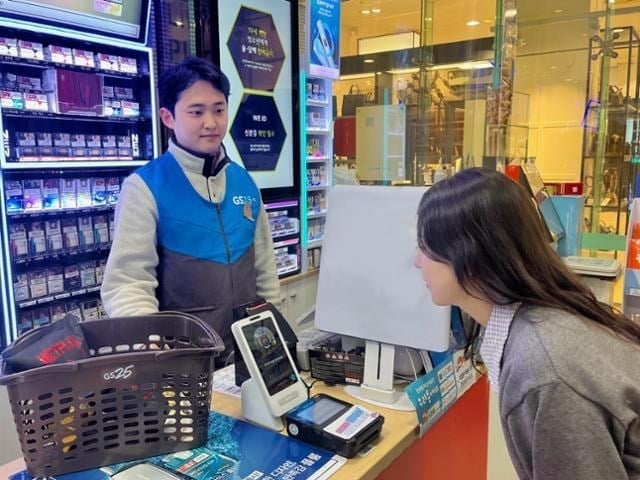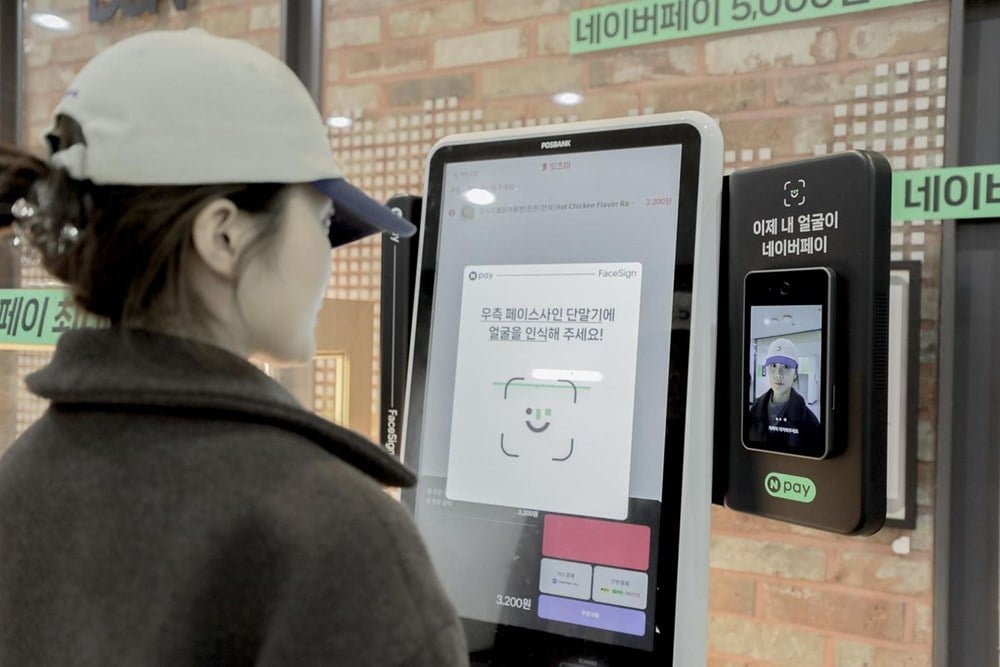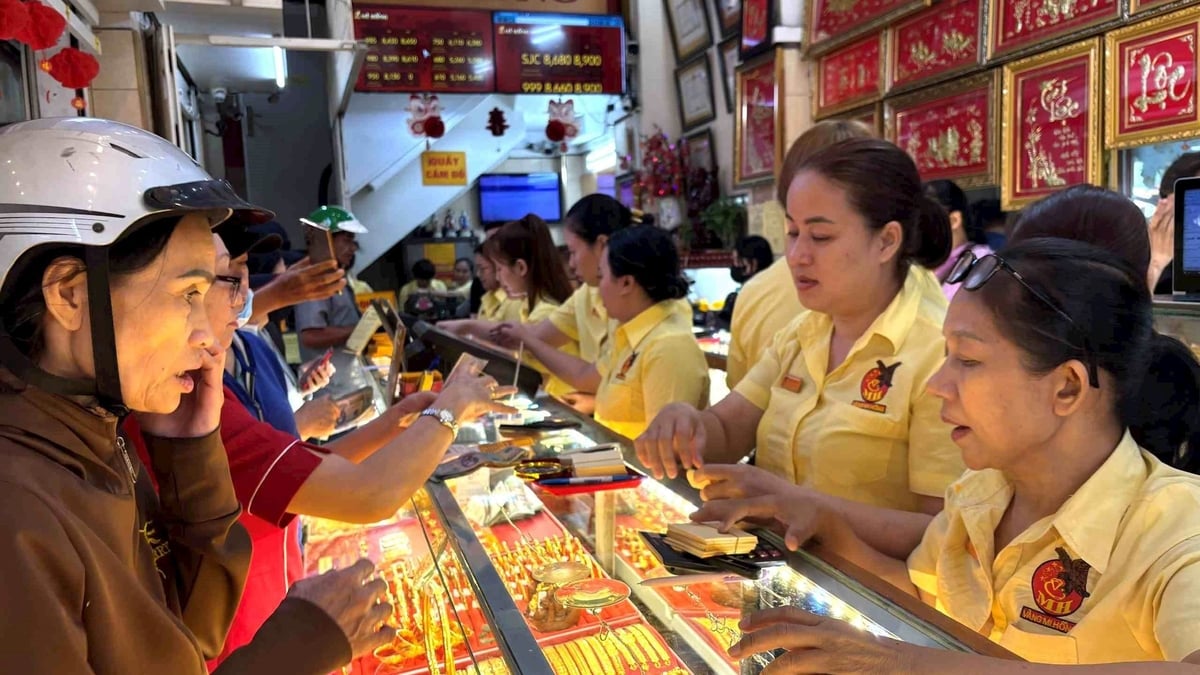
Technological leap
Shinhan Card was the first company in Korea to test facial recognition payments in 2019, applying them at its headquarters cafeteria and some affiliated stores. However, the service has not been widely developed because it requires users to register their faces directly at the bank.
The turning point came when two major fintech platforms, Naver Pay and Toss, entered the race last year. Targeting younger customers, these apps allow users to register and authenticate their faces right in the app, completely eliminating the verification step at the bank.
“This is an AI-based service with fraud detection technology built in. Once users experience it, it will be difficult for them to go back to their old payment methods,” said Lee Seung-bae, chief technology officer of Naver Financial.
Unlike Naver Pay, Toss has taken a point-of-sale infrastructure approach. Since February this year, the company has been manufacturing and distributing facial recognition-enabled terminals to stores, while also subsidizing them to encourage installation.
As a result, more than 160,000 stores nationwide have adopted Toss terminals, with more than 20,000 stores in Seoul having activated the facial payment function.
“Since it is difficult for stores to install multiple devices from different suppliers, whoever deploys early and widely will have the advantage of gaining market share,” said an industry official.
Lotte Card has also recently been approved by the financial authorities to deploy a facial payment service. Lotte’s solution will utilize biometric data registered with the Korea Airport Corporation, allowing users to pay at airport stores without swiping a card or phone.
However, despite the pace of growth, experts say the market still faces some major hurdles.

Security and compatibility concerns
Because facial data is highly sensitive, companies are not allowed to share this information with each other, leading to incompatibility between systems.
Another issue is the risk of biometric data leakage. If facial information is compromised, it is almost impossible to “renew” it like a password or bank card.
“Under current regulations, companies that deploy this technology are responsible for any damages if an incident occurs,” said a report from the Seoul National University AI Policy Initiative.
The report shows that businesses are forced to invest heavily in highly accurate recognition models to ensure data security and user trust.
Experts say that facial recognition payments are an inevitable trend in the digital age. However, for this technology to become widely popular, providers need to work together to develop common security standards, ensure inter-system compatibility, and comply with personal privacy protection principles.
Source: https://baovanhoa.vn/nhip-song-so/han-quoc-day-manh-thanh-toan-bang-khuon-mat-156937.html


























![[Photo] National Assembly Chairman attends the seminar "Building and operating an international financial center and recommendations for Vietnam"](https://vphoto.vietnam.vn/thumb/1200x675/vietnam/resource/IMAGE/2025/7/28/76393436936e457db31ec84433289f72)










































































Comment (0)